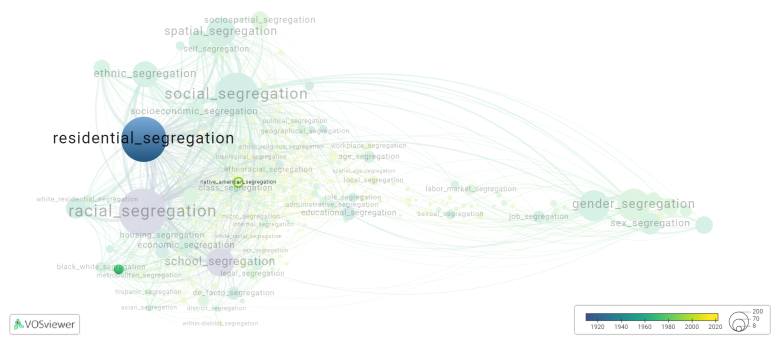Native american segregation
Date and country of first publication[1]
2003
United States
Definition
Native American segregation refers to the policies and practices that aimed to separate Native Americans from the rest of society and limit their rights and freedoms. This occurred in the United States from the colonial period through the 20th century.
One of the most well-known examples of Native American segregation is the reservation system. In the 19th century, the U.S. government forcibly relocated Native American tribes from their ancestral lands to designated reservations. These reservations were often on undesirable land and made it difficult for Native Americans to maintain their traditional way of life.
Another form of segregation was the Indian boarding school system. Starting in the late 19th century, Native American children were forcibly removed from their families and sent to boarding schools, often far away from their tribes. These schools aimed to assimilate Native Americans into European-American culture by eradicating their language, customs, and beliefs.
Furthermore, Native Americans faced discriminatory practices in housing, employment, and education. They were often denied access to resources and faced racial discrimination in public facilities, such as restaurants, theaters, and swimming pools.
Native American segregation began to change in the mid-20th century with the rise of the civil rights movement. Laws were passed to protect Native American rights, and efforts were made to promote tribal self-governance and cultural revitalization.
However, the effects of segregation and forced assimilation continue to impact Native American communities today. Many tribes face ongoing challenges related to poverty, health disparities, and the loss of cultural practices due to historical trauma.
In recent years, there has been a growing recognition of the damaging effects of Native American segregation, and efforts are underway to address and rectify these historical injustices.
See also
Related segregation forms
Native american segregation is frequently discussed in the literature with the following segregation forms:
residential segregation, urban segregation, black segregation, ethnic residential segregation

This visualization is based on the study The Multidisciplinary Landscape of Segregation Research.
For the complete network of interrelated segregation forms, please refer to:
References
Notes
- ↑ Date and country of first publication as informed by the Scopus database (December 2023).
Native american segregation appears in the following literature
Wilkes R. (2003). The residential segregation of native americans in U.S. Metropolitan areas. Sociological Focus, 36(2), 127-142. https://doi.org/10.1080/00380237.2003.10570720
Anderson K.F. (202). Residential Segregation, Neighborhood Health Care Organizations, and Children's Health Care Utilization in the Phoenix Urbanized Area. City and Community, 19(3), 771-801. Blackwell Publishing Ltd.https://doi.org/10.1111/cico.12475
